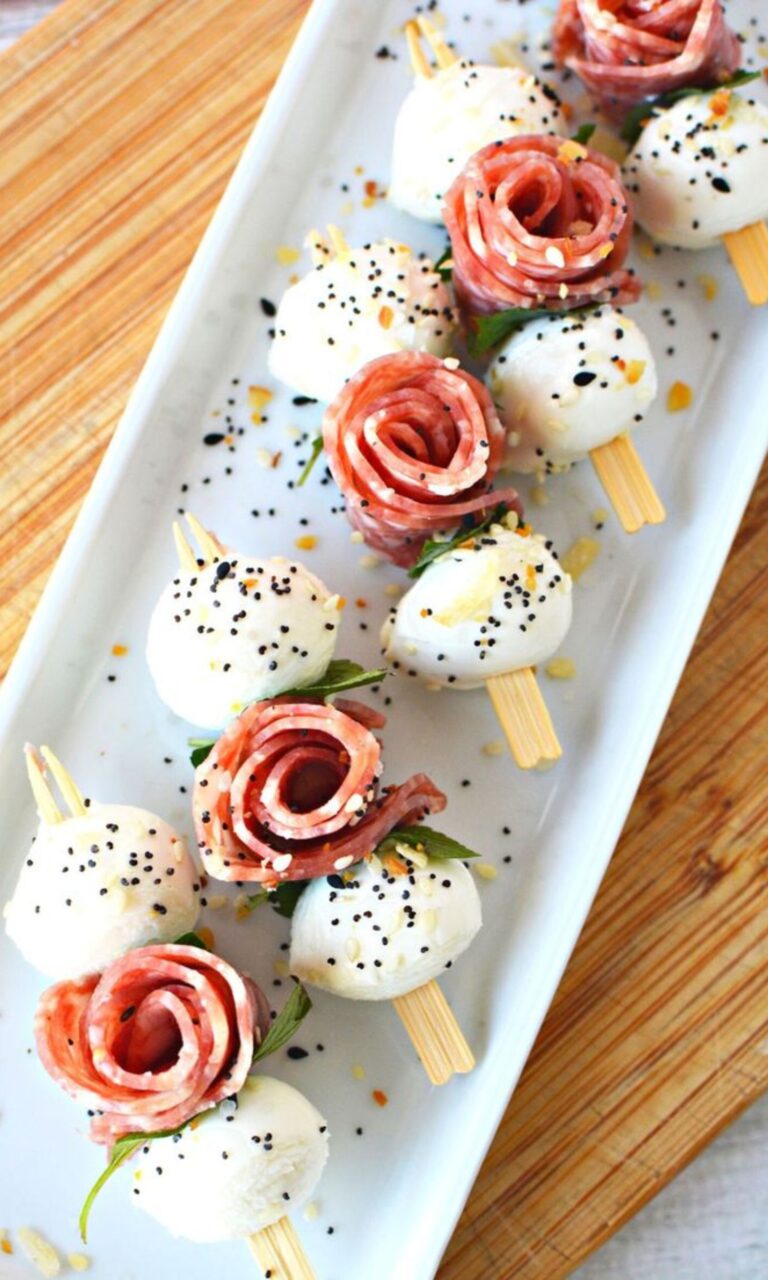8 Healthy Eating Tips For Beginners
Healthy eating tips for beginners to help you make your diet healthier.
Eating healthy can seem hard to do, especially when you’re a total newbie who doesn’t know where to start.
The truth is that healthy eating is not about overhauling your entire diet in just one day. It’s about adopting simple healthy habits and implementing them in your life one at a time.
It’s also not about starving yourself or completely cutting off all your favorite foods and treats. Instead, it’s about making conscious food choices and ensuring your meals are balanced and well proportioned.
It is super important that you start eating healthy because a healthy meal helps your body function well by improving your heart health and aiding digestion.
If it is one of your goals, a healthy balanced diet can also help you lose weight.
Whether you’re interested in knowing how to eat healthy food everyday, healthy eating tips for beginners, beginners healthy eating grocery list, or simple tips for a healthy diet, keep reading!
After reading this post, you will know exactly what you need to do as a beginner to start eating healthy and stick to it without getting overwhelmed.
This post is all about healthy eating tips for beginners.
The Best Healthy Eating Tips For Beginners
1. Eat more fruits and veggies
When you’re trying to eat healthy as a beginner, a good place to start is eating more fruits and veggies.
You can do this by making healthy smoothies, adding fruits to your breakfast, adding veggies into your eggs, opting for cauliflower rice instead of white rice, or choosing to substitute unhealthy snacks for fruits and veggies.
All these simple changes will help you increase your fruit and veggie intake.
Also, ensuring one of your meals is a salad is another simple way to eat more greens daily.
2. Opt for whole grains
A simple shift you can make when you’re a beginner trying to eat healthily is swapping unhealthy grains for whole grains.
Unlike refined grains such as white flour, white rice, and white bread, whole grains are a healthy food option.
Some of the whole grains you should consider adding to your everyday diet are quinoa, oatmeal, barley, brown rice, buckwheat, whole-wheat bread, whole-wheat pasta, and whole-wheat crackers.
Making this change can be tricky because most cereals, desserts, crackers, and pastries are made with refined grains.
That is why developing a habit of reading labels will protect you from accidentally consuming refined grains.
3. Avoid highly processed foods
Not all processed foods are bad for your health. However, highly processed foods should be limited or cut out from your diet because they don’t contain any nutrients.
Think of sweetened juices, soft drinks, candy, cookies and cakes, hot dogs, sweetened cereal, potato chips, white bread, sauces, dressings, white pasta, gravies, and white flour.
You should opt for whole foods that come from Mother Earth or animals (if you eat animal products).
If you find this challenging, go for lightly processed foods such as canned tomatoes, frozen fruits and veggies, canned tuna, and roasted nuts.
4. Practice portion control
Did you know you tend to eat more when your servings are bigger?
Several tips can be used to reduce the amount of food you eat at each meal without going hungry.
Using a smaller plate, for example, will help ensure you’re not eating more food than you need. So do this instead of putting a small amount of food on a bigger plate, as this will make you feel hungry even after eating.
Also, be fully present when you eat. Avoid scrolling on your phone or watching something as you eat; this will keep you distracted and make you eat more food than you need.
5. Eat healthy fats
Healthy fats such as avocados, chia seeds, nuts, whole eggs, fatty fish (Anchovies, mackerel, salmon, sardines), and cheese are good for your body because they are less processed and low in sugar and carbs.
To make sure you consume more of these good fats throughout the week, choose fatty fish over beef when you can.
Also, cook with vegetable oils (Olive oil, canola oil, sunflower oil, soybean oil, and coconut oil) as they are rich in healthy fats.
6. Stock up on healthy food options
Another tip that will encourage you to eat healthy as a beginner is going through your fridge and pantry and getting rid of anything that does not meet your healthy eating goals.
Limiting the amount of processed food in your home will help you stay committed to this new journey since you will be less likely to snack on something unhealthy.
So stock up on fruits and veggies, greens such as lettuce and kale, plant-based milk, fat and oil-free hummus, nut butter with no added sugars or oil, whole wheat tortillas, healthy grains, etc.
7. Meal plan
Planning your meals before the week starts will LITERALLY change your life, especially since you’re a beginner trying to eat healthily.
Choose one weekend day, and decide what meals you will eat for breakfast, lunch, and dinner in the upcoming week and how they will be prepared.
Spend time preparing ingredients, and cooking what needs to be cooked, then store everything in food containers or jars by servings.
During your busy week, you will only have to reheat your food. This will protect you from ordering unhealthy food on an exhausting Wednesday after a long day.
Also, planning healthy meals for the week will help you buy exactly what you need and save on groceries.
8. Drink water instead
Drinking more water is an excellent healthy habit you need to start as it protects you from dehydration.
Also, if you mostly consume unhealthy drinks such as soda, sugary coffee drinks, fruit juice, and alcoholic drinks, substitute them for water.
Let water be the main drink you consume throughout the week. This will help you cut down on unhealthy drinks.
If you’re someone who struggles with meeting your daily water intake, get a cute tracking water bottle.
A cute water bottle, in general, motivates you to drink your water, but a tracking water bottle will help you remember to drink your water at specific times of the day.
This post was all about healthy eating tips for beginners.
Loved these tips? Save this to get back here later!








